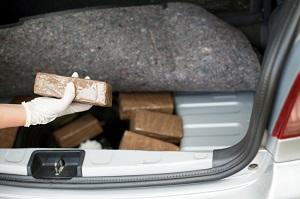Drug Distribution and Trafficking
 Illinois has fairly strict laws about drug possession, distribution, and trafficking. The latter two are decidedly more serious, as one might imagine, but many become confused when dealing with the prosecution process. There are state and federal charges, with varying degrees of severity, and those unfamiliar with the law may have trouble determining which regulations apply to them and which do not.
Illinois has fairly strict laws about drug possession, distribution, and trafficking. The latter two are decidedly more serious, as one might imagine, but many become confused when dealing with the prosecution process. There are state and federal charges, with varying degrees of severity, and those unfamiliar with the law may have trouble determining which regulations apply to them and which do not.
Classifying Drugs
The Illinois Controlled Substances Act sets forth information on which drugs are classified under which schedule, and grants the state of Illinois the authority to reschedule any drug if it is rescheduled under the corresponding federal law. There are five schedules, with Schedule I including the most dangerous drugs and Schedule V listing the least dangerous.
There are a number of factors that go into federal and state authorities classifying a drug under a certain schedule, including but not limited to the potential for abuse, the degree to which the drug can be used for legitimate medical purposes, and potential long-range effect on individual and public health. This is relevant in terms of assessing distribution and trafficking offenses because public health is a concern. A drug may be is placed on a certain schedule due to widespread fear of abuse or belief in its potential to cause long-term effects, distribution or trafficking of the drug can cause significant harm to public health.
Distribution vs. Trafficking
What many people fail to grasp is that distribution and trafficking are different offenses, even though the two words may be colloquially synonymous. Distribution is generally referred to in Illinois law as delivery, and as such, money does not have to change hands for a distribution charge to be warranted. In some cases, charges of ‘possession with intent to distribute’ have been brought when someone has a large quantity of drugs in his or her possession or many of the tools needed to distribute—such as a large supply of bags or a quantity of cash—even if no sale or delivery to someone else has been made.
Distribution becomes trafficking when state lines are crossed—not necessarily physically, as trafficking charges can be brought against those who mail controlled substances if knowledge and intent can be proven. The relevant statute permits extremely harsh sentences and monetary fines for those convicted of such an offense. The law requires that anyone convicted of trafficking be sentenced to no less than twice the minimum possible amount of time, which can add up if the type and amount of drug trafficked are significant. Simple distribution does not cross state lines.
Ask a Knowledgeable Attorney
Being charged with drug distribution or trafficking is extremely serious, and in such a situation, it is imperative to enlist the help of an experienced Kane County criminal defense attorney. Call 847-488-0889 for a free consultation at The The Law Office of Brian J. Mirandola today.
Source:
http://ilga.gov/legislation/ilcs/ilcs4.asp?DocName=072005700HArt.+II&ActID=1941&ChapterID=53&SeqStart=600000&SeqEnd=2600000







